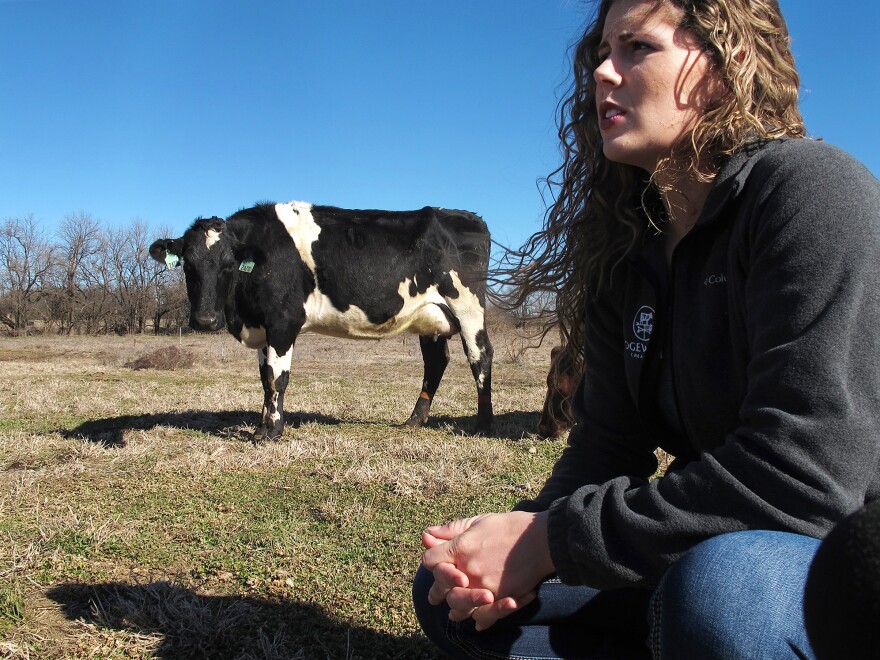Aubrey Fletcher knew she wanted to work on a dairy farm ever since she was a little girl.
"I do remember my mom asking, 'Are you sure that's what you want to do?' " Fletcher recalls. She knew the work would be tough — she grew up milking cows every day. But it's what she wanted.
So she and her husband's family collaborated to start Edgewood Creamery outside of Springfield, Mo., last August. They recently opened a storefront on the farm selling their milk and cheese.
Between the new business, milkings, feedings and fixing things that need to get fixed, there is a lot to do on the farm. "And very rarely my house gets clean," Fletcher says, laughing.
Fletcher is one of thousands of women who have taken on leadership roles in the traditionally male-dominated agriculture industry. Over the past 15 years, the fraction of U.S. farms run by women has nearly tripled to about 15 percent. And nearly one-third of farms in this country are run by couples working together.
Increasingly, these farm women are banding together through regional groups where they trade tips and seek social and emotional support.
Despite her busy workload, Fletcher has been making the time to meet regularly with a new group of women dairy farmers in her area. It's a place where she can go to vent.

These women — "they understand that, 'Oh, you had three calves this morning and you didn't get your kids to school on time.' They understand the struggles of being a dairy-farm-wife-slash-mom, and it's easy to just talk to them about the struggles, and the good times," she says.
These gatherings can also serve as a space where women can learn from each other, says Reagan Bluel, a dairy specialist for the University of Missouri Extension who runs the group for women dairy farmers in southern Missouri. Women can exchange ideas with their peers and "see what is successful on those farms," says Bluel.
The group offers more formal educational opportunities, as well. In the next few months, Bluel is organizing sessions about everything from calf-raising to stress management.
Such groups are a nice alternative to the big farm shows and meetings, where women who attend can really stand out, says Rebecca Connelly, who started a group for women in dairy in Pennsylvania. "The role of women on farms has always been there," she says. "It's just now women are looking for more information off the farm."
Connelly and her colleagues are organizing a national conference for women dairy workers this year so they can come together to learn from experts and each other.
Farming can be an isolating endeavor, Connelly says. "So this is a great way to meet other women in their area."
Suzanne Hogan reports from Missouri for KCUR and Harvest Public Media, a public radio reporting collaboration that focuses on agriculture and food production issues.
Copyright 2021 NPR. To see more, visit https://www.npr.org.



